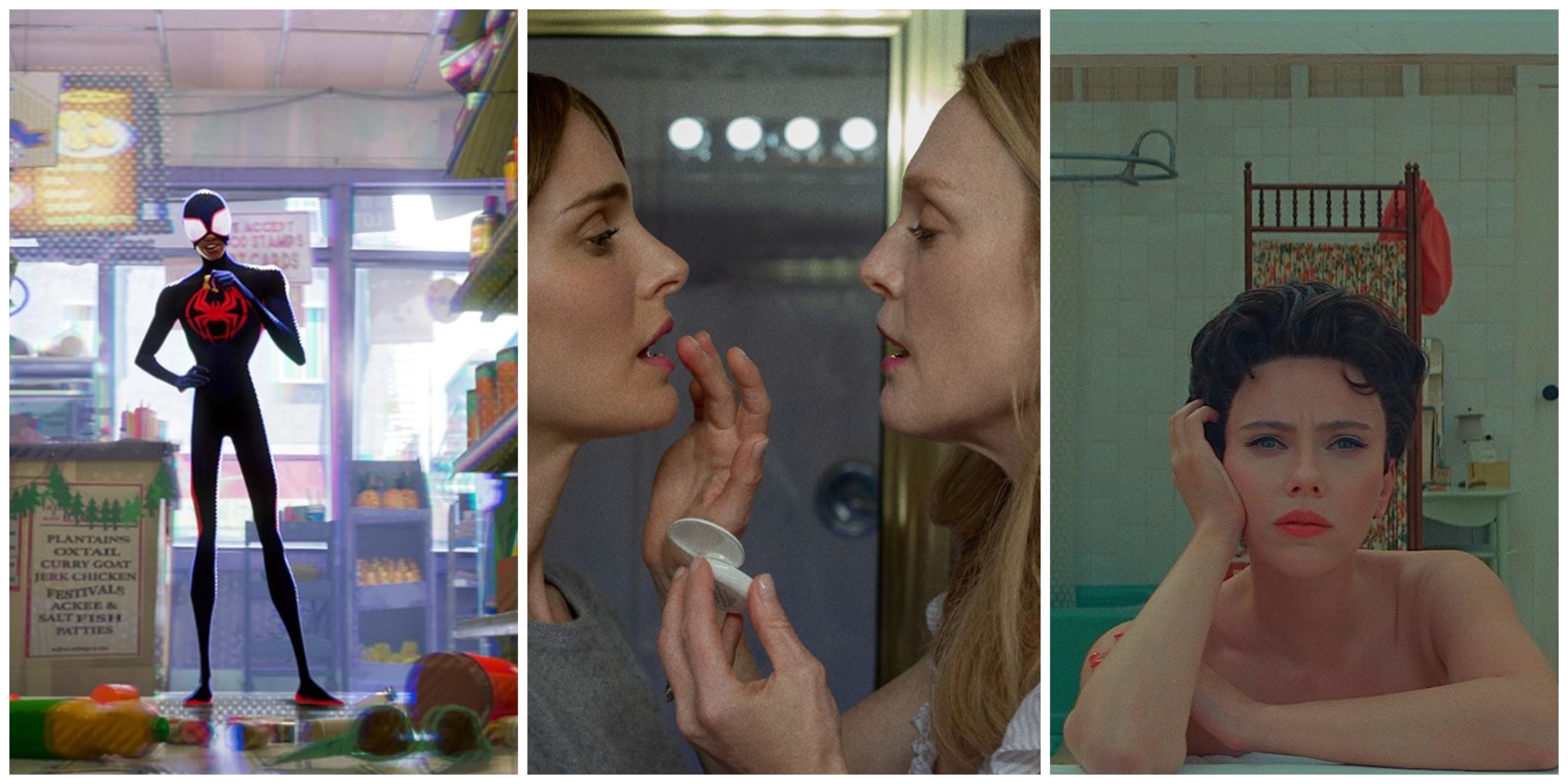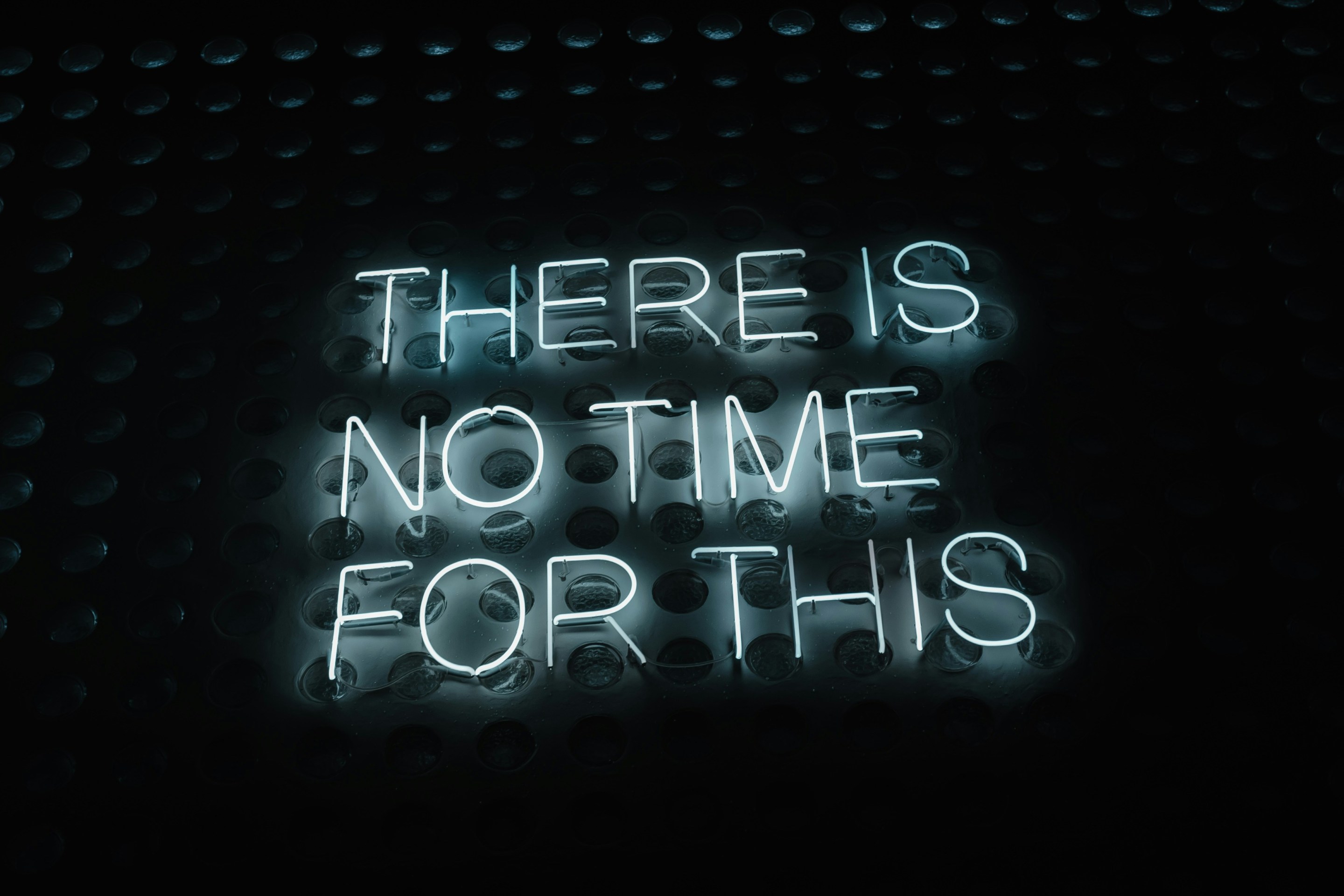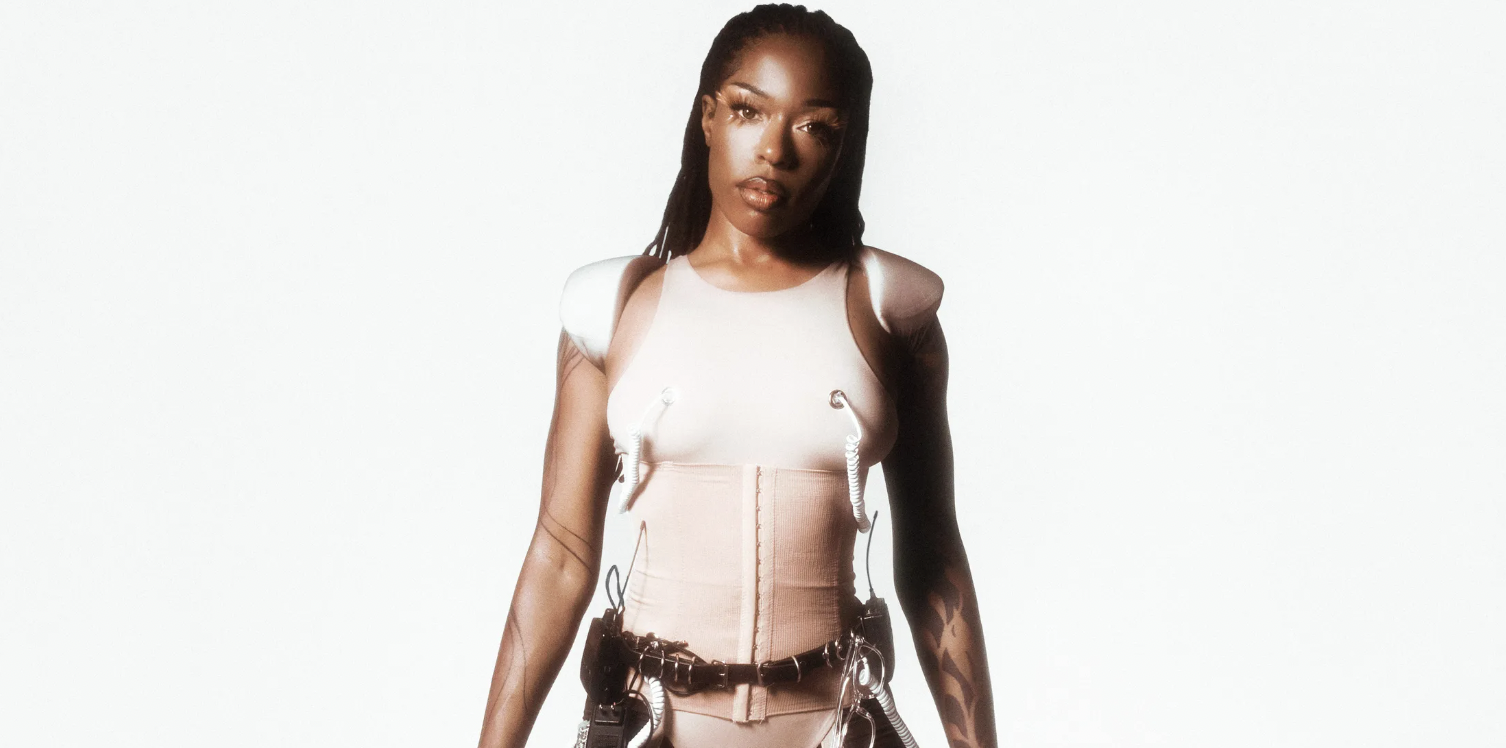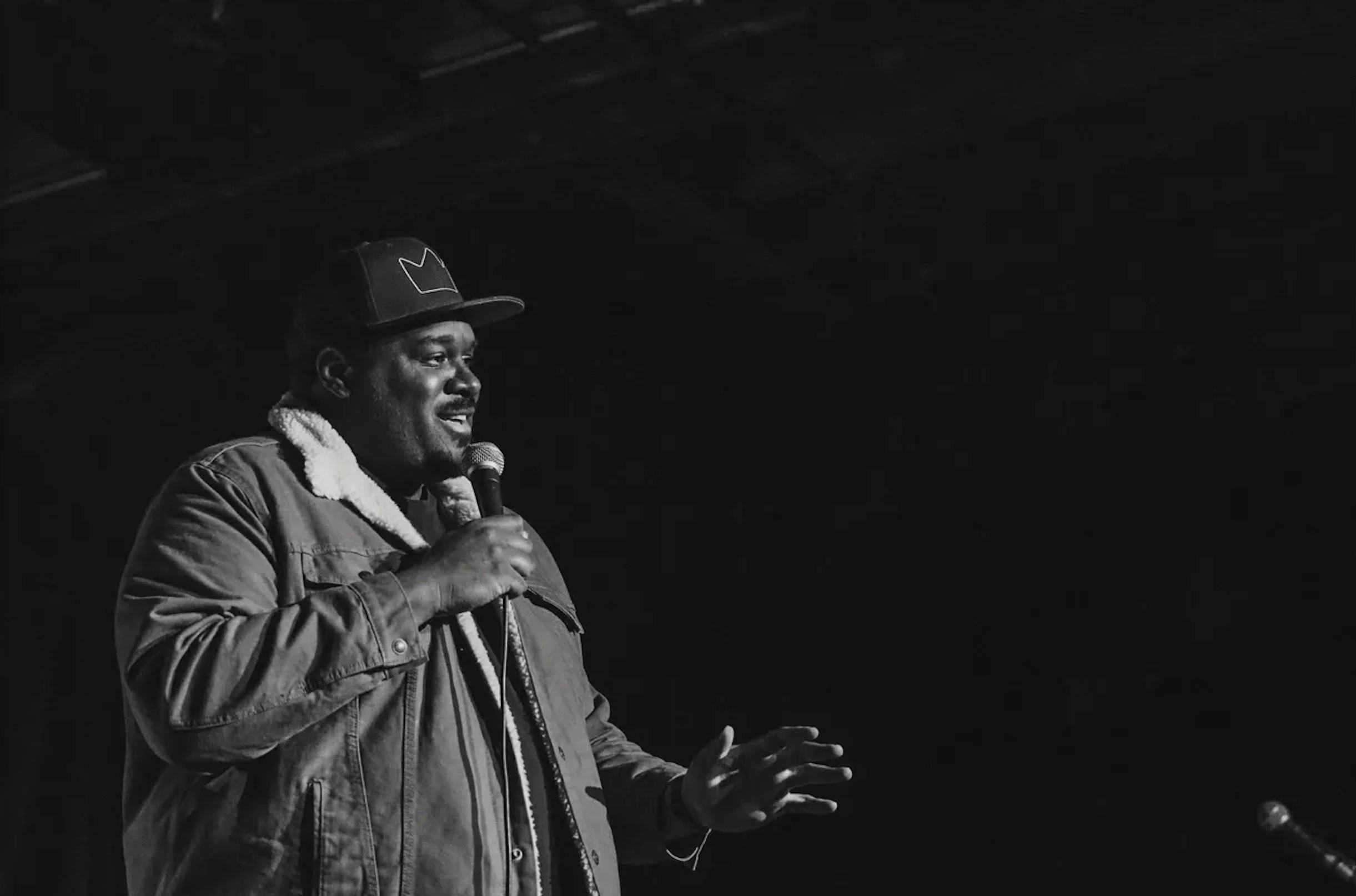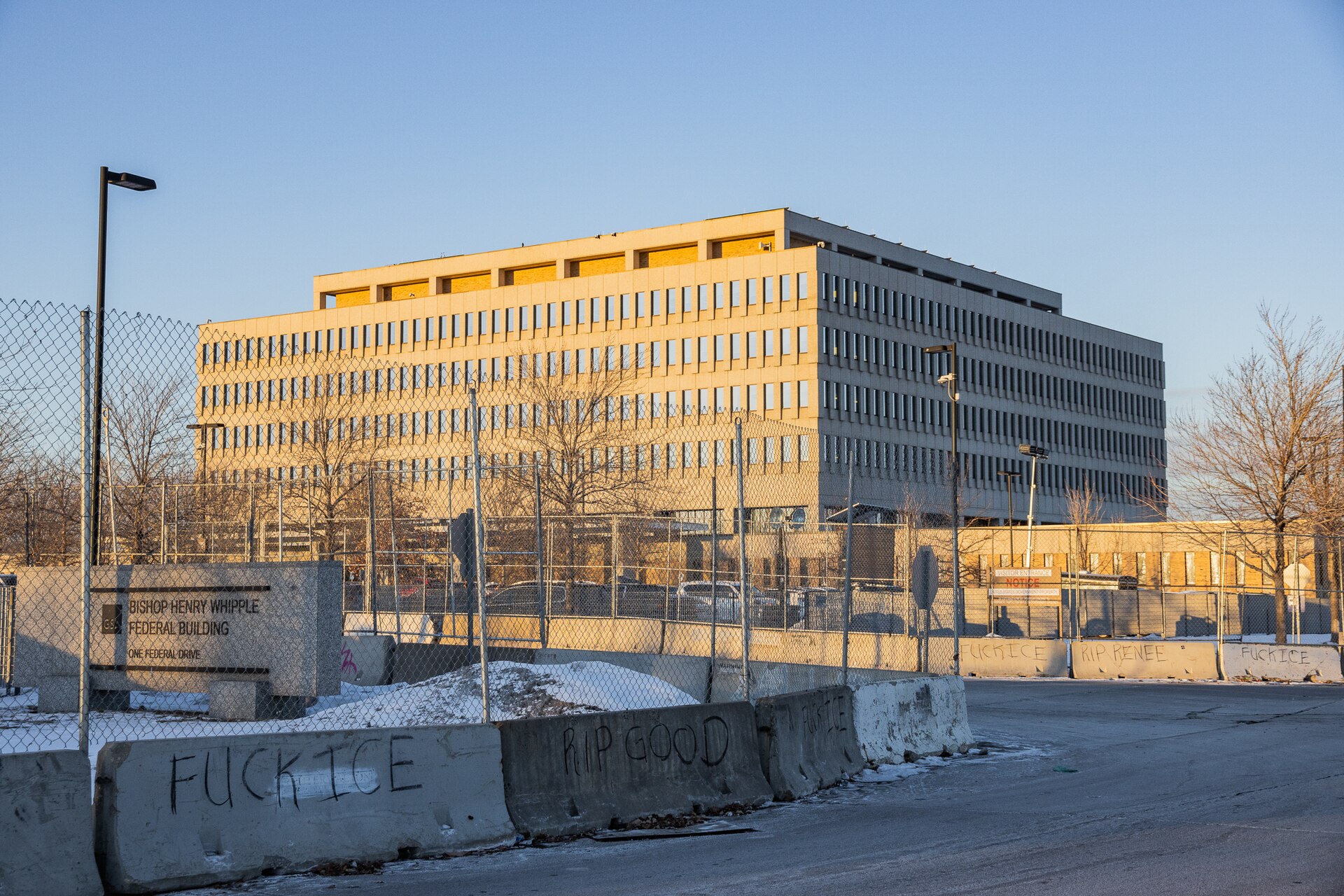Year-end lists bring out the optimist in me. The long stretch between January and December can be a trudge, littered as it is with outright disasters like Spinning Gold and (come at me) Saltburn or well-acted but dull award fodder like The Iron Claw and Ferrari, yet all those bad memories wash away when I look back over my favorite movies from the past 12 months.
Even the most popular movies of 2023 weren’t consistently terrible. Three of the top 10 highest grossing movies (Spider-Man: Across the Spider-Verse, John Wick 4, Oppenheimer) made my top 40 list, and if I wasn’t so allergic to corporate schmutz and SNL alums, I might have added 2023’s absolute biggest smash, Barbie, which delivered some of the funniest moments of the year.
Still, let’s not get carried away: The Super Mario Bros. Movie was the second-biggest movie in 2023, and much as I’d like to believe that this was just because parents need something to do with their kids, I suspect those numbers also reflect young adults desperate to preserve their childhood forever. Yuck. But the world wearied of Marvel hegemony in 2023, there were no new Star Wars feature films, and even Hideo Miyazaki’s The Boy and the Heron had a great opening week. I have less faith in the transformative power of mass culture than I once did, but 2023 did at least show that if you make great popular entertainments—if you just put in a little fuckin’ effort—people will respond.
It was an eye-popping year, from Barbie’s all-consuming pink to Oppenheimer’s Trinity detonation to Poor Things’ steampunk Lisbon to Asteroid City’s painterly backdrops to every single frame of Across the Spider-Verse. But in my corner of the cineplex, at least, it was also a year where story took precedence over spectacle—the members of the striking Writers Guild couldn’t ask for a better argument for their necessity.
What’s more, many of the year’s best movies dealt with the moral implications of telling stories. The most startling example of this, discussed endlessly already, is the final scene of Martin Scorsese’s Killers of the Flower Moon, a pointed revelation of the man behind the curtain that questions the framing of the film that has preceded it. And as critic Zach Shonfeld has pointed out, the “hokey coda” of Todd Haynes’s brilliant May December does something similar “to explore the line between dramatization and kitsch and wink at the idea that any mass-media commodification of tragic events is inherently suspect... including the movie you just watched.” These films were weighted with a sense of responsibility that was something more nuanced than cheap liberal social consciousness, an acknowledgment that genocide and sex predation aren’t exactly subjects that lend themselves to the strictures of three-act realism.
Neither is justice. A pair of courtroom dramas, Alice Diop’s Saint Omer and, more conventionally, Justine Triet’s Anatomy of a Fall, examined how a defendant must present herself to the eyes of the law in order to escape punishment. Iranian cinema has long known that postmodernism, often an academic parlor game in the West, is actually a tool in the struggle to tell one’s own story, and Jafar Panahi’s No Bears played with its film-within-a-film perspective to address the director’s precarious place in his home country.
The year’s two most talked about (and spectacular) movies were also defined by the structure of their stories. Christopher Nolan is a formalist to a fault, obsessed with splintering narrative, often to the detriment of dramatic pacing, but Oppenheimer’s past-present-future all-at-once-ness was essential to its effect. And you don’t have to go as far as Jane Hu did in Dissent and say that Barbie encapsulates “the history of Western feminism itself” to recognize how metatextually ambitious Greta Gerwig’s cosmology of the Barbieverse was.
Barbie was hardly the only movie last year to plunge into the artifice of femininity, though it was one of the few to also look at the social construction of masculinity in the process. In one of May December’s most remarked upon scenes, Natalie Portman’s actress Elizabeth gets a makeover from Julianne Moore’s Gracie so she can better understand the scandal survivor, an amoral character of whom Moore has said, “It’s like she swallowed her gender whole.” And dolls were everywhere you looked, from Elvis creating his young wife’s look in Sofia Coppola’s Priscilla to Emma Stone’s indomitable Bella Baxter, the reanimated, orgasmic heroine of Yorgos Lanthimos’s Poor Things.
And sex was… some of the places you looked. While I personally think the supposed reaction against onscreen sexuality from younger filmgoers is mostly a case of a few loud social media voices getting amplified so their elders can bitch about them, the desexualization of Hollywood movies is real—the main characters in the year’s biggest movie literally lacked genitals, and Oppenheimer was criticized for nudity that had a purpose, even if you think that purpose was dumb. In such a world, some might even celebrate the talented Ms. Fennell’s oh-so-debauched Saltburn. I’d direct you instead to Ira Sachs’s brilliant Passages, which wouldn’t work without its sex scenes, because there’s no other explanation for how its lead character keeps others in his thrall.
I could also be glib and say something like, “This was the year Hollywood finally dealt with history.” But Hollywood often deals with history in its own myopic (rhymes with “biopic”?) way, so maybe I should say instead Hollywood “dealt with history pretty well.” (And throw an “often” in there too, just to be safe.) Killers of the Flower Moon belatedly grappled with the murder of Native Americans as honestly as any white director is likely to. Oppenheimer used the tale of the “great man” as a window into the petty personal grievances and global mistakes of 20th century American politics. And Wes Anderson’s Asteroid City was Oppenheimer’s secret sharer, charting the fluctuations in anxiety during the time when America was supposedly great.
None of these subjects is purely “historical,” of course. The delusions of the brilliant, the cruelties of genocide, the burden of apocalyptic anomie—these remain all too present. Most likely, we’re looking backwards now because no one knows what happens next. (No one ever does, of course, but there are moments we can pretend otherwise.) Movies can’t see into our future, or into theirs, for that matter. Art can only do so much, after all. Right now I’d say it’s more than pulling its weight.
A little procedural note here: You might notice that some of the films on my list are technically 2022 movies. But they didn’t screen in the Twin Cities—and/or weren’t streaming—before January 1, 2023, so they’re 2023 movies to me, and to you too. That means well-reviewed but as-yet-unseen movies The Zone of Interest or All of Us Strangers or Fallen Leaves may—or may not—show up on my list next year.
Runners up (listed in order of preference): Monster; Everything Went Fine; Talk to Me; Women Talking; A Thousand and One; Polite Society; Oppenheimer; Under the Fig Trees; Alcarras; The Tuba Thieves; Bottoms; Earth Mama; The Eternal Memory; King Coal; I Like Movies; We Are Fugazi From Washington D.C.; Rotting in the Sun; Kokomo City; Reality; The Blue Caftan.
20. Stonewalling
From directors Ji Huang and Ryûji Otsuka comes a slow-burning tragedy about a directionless young woman buffeted about by contemporary China’s hustle culture. (The insanity of the grindset worldview isn’t just a U.S. affliction.) As everyone around her seems to be hawking some dubious scheme or another, Lynn (Honggui Yao) half-heartedly studies English at her go-getter boyfriend’s urging and trains to be a flight attendant. When she learns she’s pregnant, her plans to sell her eggs to wealthy buyers is quashed, but her mom sees another business opportunity. Shot from a distance, in long takes, Stonewalling has a hands-off quality to it that coolly studies Lynn rather than empathizing, and that makes her fate seem that much more cruel.
19. Showing Up
With its collection of eccentrics and mood of comic melancholy, Kelly Reichardt’s followup to First Cow is the most conventionally “arthouse” film of her career, but it’s still something special. She’s again teamed (for the fourth time) with Michelle Williams (acting much less rampantly than in The Fabelmans), who plays a tetchy, Croc-clad sculptor preparing for a show while dodging multiple distractions: a wounded bird that needs caring for, her brother’s bout with mania, and the fact that her flighty friend/landlord (Hong Chau) refuses to buy a new hot water heater. Reichert is lovingly satirical of her characters’ foibles (though Showing Up sure captures everything that drove me crazy about living in the PNW for two years, from unapologetic spaciness to oblivious couch surfers) in a film that insists that art, like any other task in life, takes (and deserves) time
18. Priscilla
Elvis’s carefully groomed (in whichever sense of that word you prefer), Graceland-imprisoned bride epitomizes the privileged, beautiful, yet captive girl who has been Sofia Coppola’s idée fixe since The Virgin Suicides. Perfectly restrained as Priscilla, Cailee Spaeny resists the urge to fill empty space with “acting.” And Coppola demystifies Jacob Elordi’s Elvis without quite humanizing him—he feels less like a man than an event that repeatedly happens to Priscilla. We know better by now than to expect a simulation of psychological depth or development here—Coppola was “just vibes” way back before anyone said “just vibes.” Instead, we’re immersed in the experience of being Priscilla, of seeing Priscilla, and of being seen as Priscilla.
17. Poor Things
Yorgos Lanthimos is such a cheekily off-putting director it never occurred to me what his idea of crowd-pleaser might look like. But with Poor Things, he doesn’t just want to be admired, he wants to be loved. And in its own creepy, garish, oversexed, male-gazey way, Lanthimos’s arch fairy tale does have heart. An Eve who can’t wait to get the fuck outta Eden, Emma Stone’s Bella Baxter becomes Frankenstein’s monster as Candide in the world at large, indomitable because she has no shame. Bella’s sex-positivity is indubitably a man’s ideal of what it means to be a free woman, addressing fewer contradictions of femininity than Barbie does, but Stone inhabits her character so completely that you might even say she liberates Bella from her creator.
15. Sam Now
“My ordinary American family has a troubling secret!” is a subgenre of documentary film that we have more than enough of these days, but Reed Harkness really peers under the dysfunctional hood here. At the center of the film are the efforts of Reed and his half-brother Sam to track down Sam’s mother, who abandoned her children when he was in elementary school, but that’s just the tip of the trauma iceberg. What makes Sam Now work visually are Sam’s zany childhood performances in Reed’s homemade Super 8 films, but what makes it work emotionally is its refusal to look away. The result is like a harrowing, extended family therapy session, but we’re given some hope the younger Harknesses may actually break the patterns their elders could not.
16. John Wick: Chapter 4
John Wick is in danger! (Is he ever not?) Like any series wrap-up, the fourth installment in Chad Stahelski and Keanu Reeves’s action saga is overstuffed with both lore and action as they cram whatever they can into their last romp together. Still, you know the drill: John Wick must kill someone in particular before everyone else kills John Wick. What you’ll remember as the credits roll is a battle in traffic around the Arc de Triomphe during which Wick is hit by a truly astounding amount of cars and Wick’s dogged struggle to climb up the 222 steps of the Sacré-Coeur Basilica before sunrise while roughly an infinity number of thugs try to stop him.
14. The Boy and the Heron
I’m not the first to call this Miyazaki’s The Tempest, but it’s worth repeating. For this film, Miyazaki famously unretired, and it wasn’t his first time. (Characteristically, the 82-year-old called his decision to return to moviemaking “pathetic.”) His latest imagined world brims with fantastical species—ravenous human-sized parakeets and the shmoo-like warawara, who inflate after eating fish guts and rise up to the other world to become human souls—yet the filmmaker’s stand-in is an ancient wizard of sorts who regrets fashioning a crumbling alternate universe beset by unforeseen calamities. If its 2013 predecessor, The Wind Rises, felt like a finale, this feels like an encore, a coda, a curtain call, a monologue from a great artist assuring us that this time, really, he is leaving the stage for good. His charms are all o’erthrown. For now, at least.
13. Anatomy of a Fall
Justine Triet’s latest is a kind of austere pulp, its subject matter juicy but its mood somewhat rigorous. After her husband plummets to his death from an upstairs window, an icy novelist is quickly transformed from grieving widow to prime suspect and struggles to recast herself as an acceptable defendant. And the more evidence that we’re given, the less certain we are of everything. Far from an invitation to speculate, however, that ambiguity seems to be the point: actual truth and legal truth are not identical. A showcase for Sandra Hüller, who plays the accused as a woman not just defending herself but defending her fundamental belief in the complexity of human motive, a belief she’s loath to surrender even for the sake of proving her innocence.
12. Trenque Lauquen
“Oh no, is this asshole really gonna tell us that the four-hour movie from Argentina was one of the best things he saw this year?” Haha, yes I am, deal with it, suckers. After a young botanist (Laura Parades) disappears in the titular Argentine town, her two lovers begin a search, both suspecting different causes based on their own personal assumptions about her. Writer/director Laura Citarella toys with genres and expectations (her use of music to signal a change in tone is ingenious and sometimes hilarious), and she weaves a series of interconnected mysteries into a tale that’s by turns playful and meditative, less concerned with solving her riddles than with ways we explain away the mysterious. See it if and when you can
11. Are You There God? It’s Me Margaret
Judy Blume wasn’t a part of my childhood (ah, the curse of boyhood), so I have no imagined version of this novel to judge against. But as writer/director Kelly Fremon Craig showed with The Edge of Seventeen, a movie that so many people (including me) consider underrated it’s probably slightly overrated by now, she’s got an excellent rapport with young actresses. Abby Ryder Fortson’s perplexed Margaret, Elle Graham’s bratty Nancy Wheeler, and Isol Young’s prematurely developed Laura Danker are all perfect. And Rachel McAdams is no slouch either as Margaret’s mom, a city girl learning to cope with life in suburban Jersey. (The struggle is real.) The vibe is ’70s enough, but less in a HERE WE ARE IN THE ’70s manner than in a “the more things change” sorta way. Of course I teared up a little. I can’t imagine how I’d have responded if I had a daughter. Or if I was one.
10. Asteroid City
Don’t ask me what makes some Wes Anderson movies great and others just OK—after decades of puzzling it out, the best I can say is that though the emotive ingredients stay the same, some work on me and some don’t quite. (Super-useful criticism there, Keith.) This one sparked a sadness the source of which I’ve been trying to pin down ever since, and the most likely (and unlikely) cause I can locate is a quiet sense of loss underpinning Edward Norton’s drawl. This story within a story (I know) within a story (I KNOW) concerns preteen science nerds in 1955 who descend on a town of Looney Tunes canyonscapes, where a series of events and encounters never coalesce into anything as obtrusive a plot. The faded yet vivid pastels suggest a nostalgia for the height of the American century that’s undercut by a deadpan melancholy, the ideal vehicle for expressing the grief that arises when a world-changing event doesn’t change the world after all.
9. Four Daughters
At the start of Kaouther Ben Hania’s formally adventurous documentary, all we know about Olfa Hamrouni is that two of the Tunisian woman’s four daughters disappeared years earlier. The director brings in a pair of actresses to play the missing daughters in staged re-creations that, along with some offscript conversation, reveal the complexity of the daughters’ relationship with their mother and each other, dig up some family secrets, and lay out the difficulties of creating a female identity in the shifting political, religious, and social conditions of northern Africa. As intense as you might expect, and also funnier.
8. Return to Seoul
Freddie, a young woman who was adopted and raised by a French couple, finds herself in Korea on a whim and looks up her birth parents. Once she meets her drunken, manipulative father, her life goes off the rails, and we periodically re-meet who she has become at different stages in her life, like in a Seven Up! movie. With a remarkably performance from Park Ji-Min and her resting brat face, director Davy Chou has made a film that feels just as improvisatory as Freddie’s life—which, like anyone’s life, only makes sense in retrospect—though I do wish he’d retained its more resonant original title: All the People I'll Never Be.
7. Killers of the Flower Moon
Martin Scorsese has always shoved the futility of a thug’s life in our faces, but in his later years he’s taken a longer, historicized view of the banality of crime. Participating in the attempted genocide of the Osage Nation under the delusion that he’s helping his family, Leonardo DiCaprio’s dim Ernest Burkhart is kin to Robert De Niro’s Frank Sheeran in The Irishman, a man who squanders his life as a goon in the service of powerful, violent men. But this film belongs to Lily Gladstone as Burkhart’s Osage wife Mollie. With her impassive gaze, a smile that reveals nothing while edging toward a smirk, and eyes that eyes can tease without mocking, rage with sadness, or go dead-blank with shock, she takes center stage here to represent all the people (and particularly women) that Scorsese pictures have happened to over the years.
6. One Fine Morning
Mia Hansen-Løve once again traces the undramatic rhythms of an imagined life, and as always there’s an underlying purpose to the film’s relative shapelessness. Léa Seydoux’s Sandra is a single mother caring for a father with dementia who believes her romantic and sexual life is behind her. And then, voila!, it isn’t. Maybe no serious contemporary filmmaker cares as much about relationships between men and women, about that space between sexual attraction and love-if-that’s-what-you-want-to-call-it, and about how those relationships subtly modulate over time rather than peak and crash. (In this sense, she’s something like a more conversationally terse Rohmer.) Rather than coming to an end, One Fine Morning reaches a moment where it seems reasonable to stop following this story, because Sandra is no longer exactly the woman we met nearly two hours earlier.
5. Passages
Love triangles don’t get much messier than this. If you’re one of those people who demands likable characters, Ira Sachs’s flummoxing story of infidelity and selfishness and reason overpowered by sex will send you screaming from the room. A film director (Franz Rogowski) spends the night with an elementary school teacher (Adèle Exarchopoulos) and decides he’s in love, but isn’t ready to divorce his husband (Ben Whishaw). Gifted with irrepressible energy but no sense of introspection, Rogowski’s thrift-store chic Tomas refuses to give up either Exarchopoulos’s Agathe or Whishaw’s Martin, while also refusing to make any compromises and repeatedly sabotaging their lives. Apparently he’s great in bed though, and here’s one movie honest enough to admit that matters.
4. Spider-Man: Across the Spider-Verse
If we’re gonna have multiverses (and let’s face it, we’re gonna have multiverses) then let each individual universe we enter be rendered in a distinct style: the impressionistic pastel setting of Gwen Stacey’s world, the crackling 3D-without-the-glasses backdrop of Miles Morales’s Brooklyn, the broad strokes of the dazzling metropolis Mumbattan. In Miles’s scenes battling The Spot, a being whose body is plastered with holes you can fall into, re-emerging someplace else, or his gravity-defying travels and hangs with Gwen, there’s an absolute weightlessness to the movement, a sense of possibility that’s been processed out of most “live action” movies. The first superhero movie in years that made me wish I knew more about comics—not about the minutiae of lore, but about the art itself.
3. Saint Omer
Alice Diop’s debut feature is a courtroom drama unlike any other. No lawyerly pyrotechnics, no surprise witnesses, no shocking admissions, just one young woman, a Senegalese immigrant, who has drowned her infant and faces the scrutiny of a French legal system incapable of understanding her motivations. As the defendant, Guslagie Malanda is on screen for most of the film, her subtle and unreadable performance so engrossing that it’s easy to overlook how excellent Kayije Kagame is as the pregnant journalist who is drawn into her own past by watching the trial.
2. No Bears
The fifth film Jafar Panahi has made in defiance of Iran’s 2010 decree prohibiting him from filmmaking is the most narratively complex of the lot and, despite a comic warmth in its early scenes, the darkest. Since the ban, Panahi has become a central figure in his movies, but he’s never been a more emotionally rounded fictionalization of himself than he is here. Directing a film in Turkey via webcam from a small rural town just across the border, he arouses the suspicions of the villagers and is drawn into their squabbles, his increasingly fraught dilemma a small-scale replication of his absurd real-life victimization by the Iranian government.
1. May December
Todd Haynes reframes Bergman’s Persona as a made-for-TV movie. Identities blur as an actress (Natalie Portman) pries into the past and psyche of a one-time scandalous tabloid sensation (Julianne Moore) who had sex with (and later married) a 14-year-old boy. Haynes has us constantly looking the wrong way, asking the wrong questions, laughing at the wrong things, disturbed by the wrong scenarios. And in a film perpetually on the edge of unsettling revelations, Charles Melton’s carefully modulated performance as the boy, now a confused middle-aged man with kids headed off to college, is our reminder that the most disturbing thing happened 24 years earlier.
